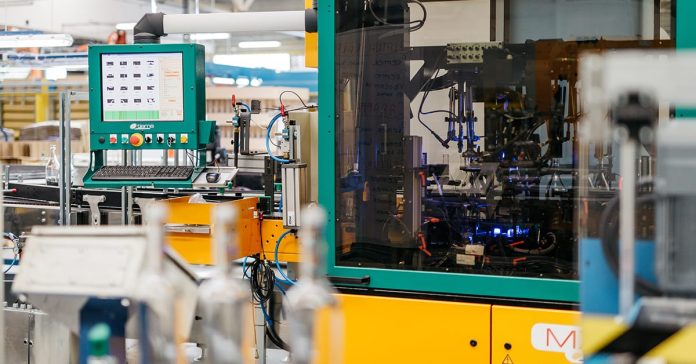Telekom Slovenia and Slovenia-based industrial tech provider Iskratel are to deploy hybrid public-private LTE and 5G networks for Industry 4.0.
The pair said they will undertake an analysis of market needs, perform equipment interoperability testing, and investigate spectrum planning aspects. Their arrangement will focus on the smart factory use case, they said, and on building an “open ecosystem of partners that share a common vision” around a ‘hybrid’ industrial networking model.
Matjaž Beričič, board member at Telekom Slovenia, said: “We are designing our smart 5G infrastructure in such a way that we can provide, on top of communication services, numerous virtual dedicated networks for individual business verticals, and one such project is the development with Iskratel.”
Kristijan Melinc, sales director at Iskratel, said: “As the manufacturing industry has taken the sector lead with the largest number of IoT deployment projects in 2019, the smart factory has become a key 5G use case.
“Co-innovation around evolving standards and interconnectivity is a particular historical strength of Iskratel, so we indeed share the vision of evolving hybrid solutions for an IoT and AI powered world: from 4G now to 5G in the very near future and private networks seamlessly interconnected to public networks.”
Telekom Slovenia, owned by the state, appears to be following the Deutsche Telekom model with so-called ‘campus networks’ for industrial customers, offering a kind of proto-slicing of public LTE networks, deployed in licensed spectrum, as a pre-cursor to slicing-proper with 5G networks.
Deutsche Telekom has so far announced deals with German lighting company OSRAM, German car parts maker ZF Group, and the RWTH research institute at Aachen University. LTE-based ‘campus’ networks, delivered by operators and configured correctly, can serve most industrial use cases, whilst offering a pathway to new 5G use cases, as well, it reckons.
Telekom Slovenia’s reference to hybrid public-private arrangements also suggests roaming between dedicated campus networks, whether in privately or publicly held spectrum, and operator-run cellular networks using spectrum licensed for public services, whether as general-purpose or special-usage service functions.
Beričič said: “5G is an evolution of the 4G network, ushering new capabilities and becoming a key factor in the digitalization of economies for this decade. 5G will deliver significantly faster, more reliable and more stable mobile data transfer, with significantly higher speeds and lower latencies.
“This will be very important especially for the digitalisation of the whole economy, [including] healthcare and industry. 5G brings new opportunities for the development of innovative high value-solutions. It will support advanced multimedia services, secure development of the IoT, digitalisation of business verticals, and much more.”

